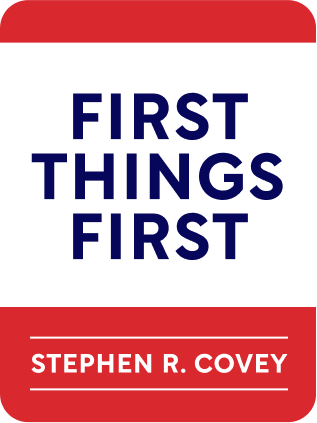

This article is an excerpt from the Shortform book guide to "First Things First" by Stephen R. Covey. Shortform has the world's best summaries and analyses of books you should be reading.
Like this article? Sign up for a free trial here .
What is the current paradigm of time management? What is the Stephen Covey paradigm shift from urgency to importance?
Traditional time management approaches work within the paradigm of urgency. They emphasize what’s urgent and downgrade what’s important. According to Stephen Covey, a paradigm shift—from urgency to importance—can reverse this thinking.
Keep reading to learn about Stephen Covey’s paradigm shift process.
The Stephen Covey Paradigm Shift Process
There are three aspects you need to understand in order to effectively make this paradigm shift.
- You must fulfill your four human needs and capabilities.
- You must understand “true north” principles.
- You must understand the four human endowments and how to use them to create new paradigms.
Let’s explore each of these in depth.
Fulfilling Your Four Human Needs
According to Stephen Covey, paradigm shift from urgency to importance begins with fulfilling your four human needs.
There is a difference between living day to day and feeling fulfilled. Humans get a sense of fulfillment only through satisfying four fundamental human needs: “to live, to love, to learn, to leave a legacy.”
The need to live involves your physical needs for survival, including food, shelter, clothing, good health, and money.
The need to love pertains to humans’ need to be social and have relationships with other people in which they can love, be loved, and feel they belong.
The need to learn is your need to continuously nourish and develop your mind.
The need to leave a legacy pertains to a more spiritual desire to live a life of purpose and meaning, in which you feel you’re contributing to society.
Understanding “True North” Principles
The second step of Stephen Covey’s paradigm shift process is understanding “true north” principles. These include include integrity, moderation, self-discipline, loyalty, responsibility, honesty, and patience.
Just like true north is the same regardless of where you’re standing in the world and which direction you’re facing, principles are the same no matter your paradigms, culture, or generation. And principles — like true north — give you direction and context for where you are and how to reach your destination.
Understanding the Four Human Endowments
The third step of effectively shifting your paradigms is understanding the four unique human endowments:
- Self-awareness is your ability to think about your thoughts and actions. This allows you to recognize that you have paradigms, question them, and evaluate how they’re affecting your behavior.
- Conscience is your internal compass. Your conscience helps you recognize when your actions don’t align with principles.
- Independent will is your ability to choose your actions. Although habits, environment, and conditioning can strongly influence how you react to a situation, your independent will gives you the power to choose a different response.
- Creative imagination is your capacity to imagine new possibilities. This is the power to envision the future you want or come up with new solutions to problems.

———End of Preview———
Like what you just read? Read the rest of the world's best book summary and analysis of Stephen R. Covey's "First Things First" at Shortform .
Here's what you'll find in our full First Things First summary :
- How to work effectively, not just efficiently
- Why you need to think more about what you're spending time on than how much time you're spending
- The 6 steps to effectively schedule and prioritize important activities






